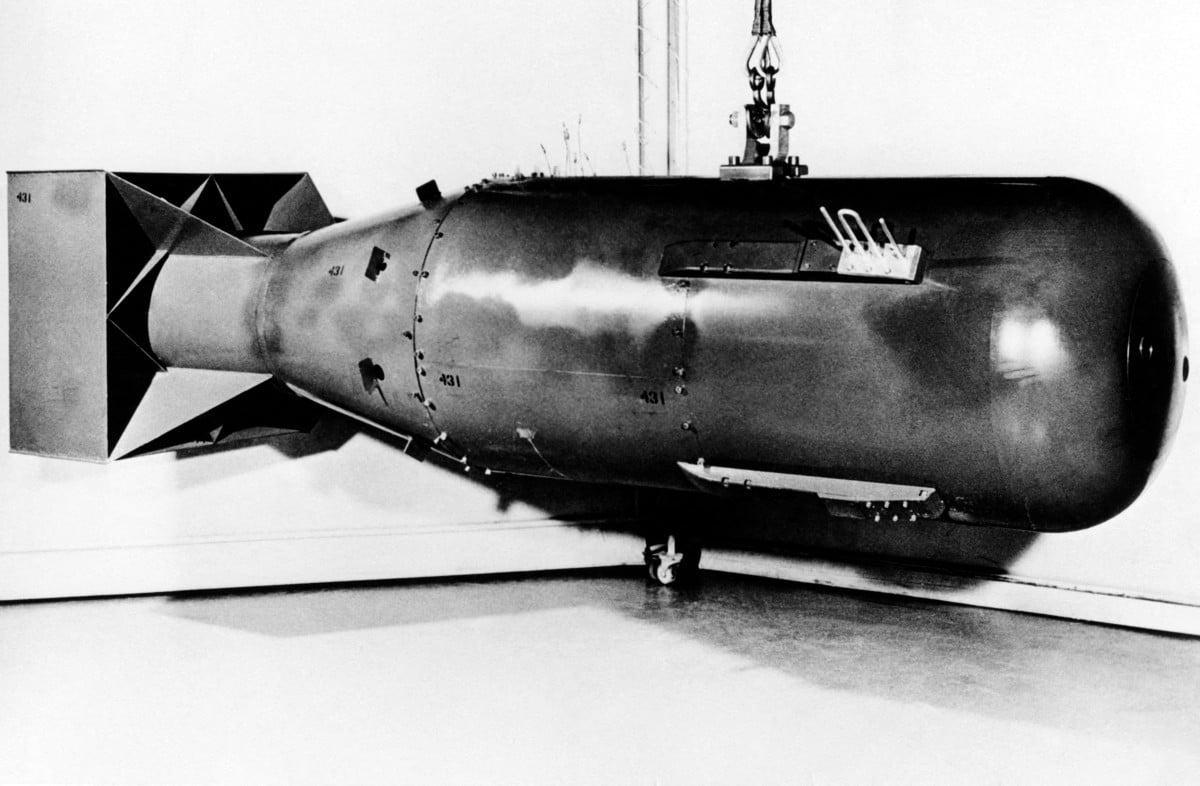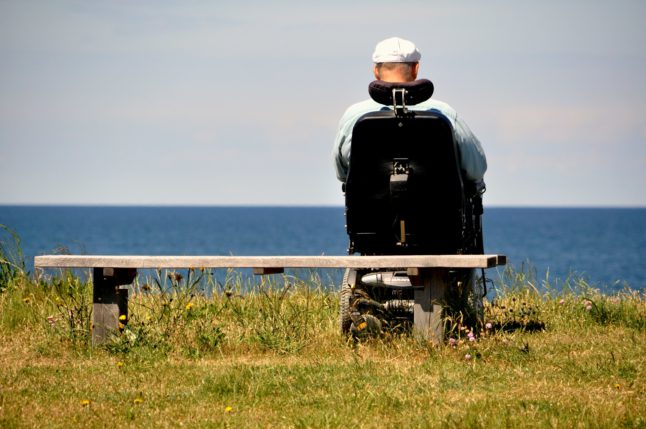Spain isn’t part of the reduced group of nations that have nuclear weapons, which includes European neighbours the UK and France.
It has never tested nuclear weapons, does not manufacture them, nor has it bought them from nuclear allies who make them.
Spain is still a NATO member and doesn’t shy away from involving itself in foreign policy debates, often taking positions against the mainstream.
But it has still never joined the nuclear club nor have Spaniards ever really wanted to, even though former dictator Francisco Franco had different ideas (more on that below).
In fact, Spaniards seem to have an indifferent if not abnormally negative view of nukes, largely stemming from an accident by an American air force on Spanish soil in the 1960s.
READ ALSO: How important is nuclear power to Spain?
A 2018 study on state attitudes towards nuclear weapons concluded that Spain had “little to no interest in nuclear weapons.” Yet Spain still benefits from NATO’s so-called ‘nuclear umbrella’ defence and has nearby neighbours, including France and the United Kingdom, that are nuclear powers. It is also home to several American military bases.
In that sense, Spain balances a somewhat unique position of being pro-nuclear for other countries and as a broader defence deterrence at the global level, but not on Spanish territory because it knows that would not sit well with Spaniards.
But why is this? Why doesn’t Spain have nuclear weapons?
Anti-nuclear sentiment among Spaniards
According to an article for Institut Montaigne by Clara Portela, Professor of Political Science at the University of Valencia, the Spanish people are “sensitised on nuclear weapons, if not negatively disposed towards them.”
Much of it comes down to history and, in particular, an accident involving nuclear weapons on Spanish soil. As part of post-war defence and security agreements Spain made with the U.S, American nuclear weapons were kept on Spanish soil.
Spaniards weren’t keen on the idea. Portela notes that “their presence at the Torrejón base near Madrid was a controversial issue” among the public, but it was an accident in 1966 that really soured Spaniards to nuclear weapons after an American aircraft carrying a hydrogen bomb crashed and dropped the device in the waters near the town of Palomares off the coast of Almería.
READ ALSO: Ten of the best documentaries about Spain
The incident caused “one of the bombs to fall to the seabed and leak radioactivity” into the surrounding area, Portela states, something that would have no doubt hardened many Spaniard’s perceptions towards nuclear weapons, especially as the American bombing of Hiroshima and Nagasaki was still in living memory for many.
A NATO-nuclear referendum
This scepticism towards nuclear arms was solidified twenty years later in a referendum on NATO membership. Though the government of the day campaigned for continued membership of the military alliance, it made it conditional on Spain also continuing as a non-nuclear power. A clause in the referendum consultation outlined this condition: “The prohibition to install, store or introduce nuclear weapons on Spanish soil will be maintained.”
Spaniards backed their continued, non-nuclear NATO membership by 13 percent.
A year later, in 1987, Spain formally signed the Treaty on Non-Proliferation of Nuclear Weapons (NPT), further cementing its non-nuclear stance.
And that was it — with this and the result of the referendum, Portela suggests that “the issue of nuclear weapons was all but archived. It hardly re-surfaced in public debates for decades.”

The nuclear dictator?
Despite the Spanish public’s distrust of nuclear weapons, there was one Spaniard in particular who was quite keen on the idea: Franco.
In what may be one of the most terrifying historical ‘what ifs’ ever, the fascist dictator wanted to equip Spain with a nuclear arsenal, started a project to do so, and came very close to achieving it.
The ‘Islero Project’, as it was known, was top secret and lasted for several decades of scientific research until it was finally abandoned in the 1980s after his death.
Firstly, a brief consideration of the geopolitics of the time is worthwhile here, and it concerns the Americans again. When the Second World War ended in 1945, Spain immediately became isolated on the international stage owing to its support for Nazi Germany and fascist Spain. It was excluded from the UN and shunned as a real player in international relations.
As the Cold War and threat of nuclear annihilation grew throughout the 1950s, Franco’s fierce anti-communism combined with the strategic geographical positioning of Spain led the U.S. to form closer ties with the dictatorship, promising financial aid and image rehabilitation in return for allowing American military bases in Spain.
READ ALSO: Where are the US’s military bases in Spain and why are they there?
The Junta de Energía Nuclear was created in 1951, undertaking research and atomic energy development more broadly, and it sent promising researchers to study in the U.S. When they returned, the Islero project continued in secret.
Rather bizarrely, it was the accident at Palomares years later that actually gave the scientists the key to designing an atomic bomb. Unconvinced by the American’s explanations for the debacle, the Spaniards working on plans discovered the Ulam-Teller method, which was fundamental to the development of the thermonuclear bomb or H-bomb.
However, the project was then frozen by Franco himself because he feared the United States would discover that Spain was trying to develop its own atomic bomb and impose economic sanctions.
After Franco’s death in 1975, Spanish scientists secretly restarted the project, but in 1982 the new Socialist government discovered the plans and disbanded the project. By 1987 the González government announced Spain’s accession to the Non-Proliferation Treaty NPT and the issue has rarely even come up as an issue since then.
And despite that, Spain is a NATO member, regularly attends the G20, and often plays a leading role on the global stage. Certain elements of the dictatorship had eyes on building a nuclear arsenal, but it never happened. Franco ultimately worried about the economic repercussions of being discovered, and Spaniards were themselves sceptical about the idea based on the experience in Palomares.
In terms of nuclear weapons, Spain is what Portela describes as a ‘de-proliferation’ state – in other words, a country that aspired to have nuclear bombs but reversed it.
It doesn’t look like changing anytime soon either. A survey in 2021 showed that Spain had the highest level of support for the Treaty on the Prohibition of Nuclear Weapons, with a massive 89 percent majority.
READ ALSO: Why is Spain not in the G20 (but is always invited)?



 Please whitelist us to continue reading.
Please whitelist us to continue reading.
Member comments